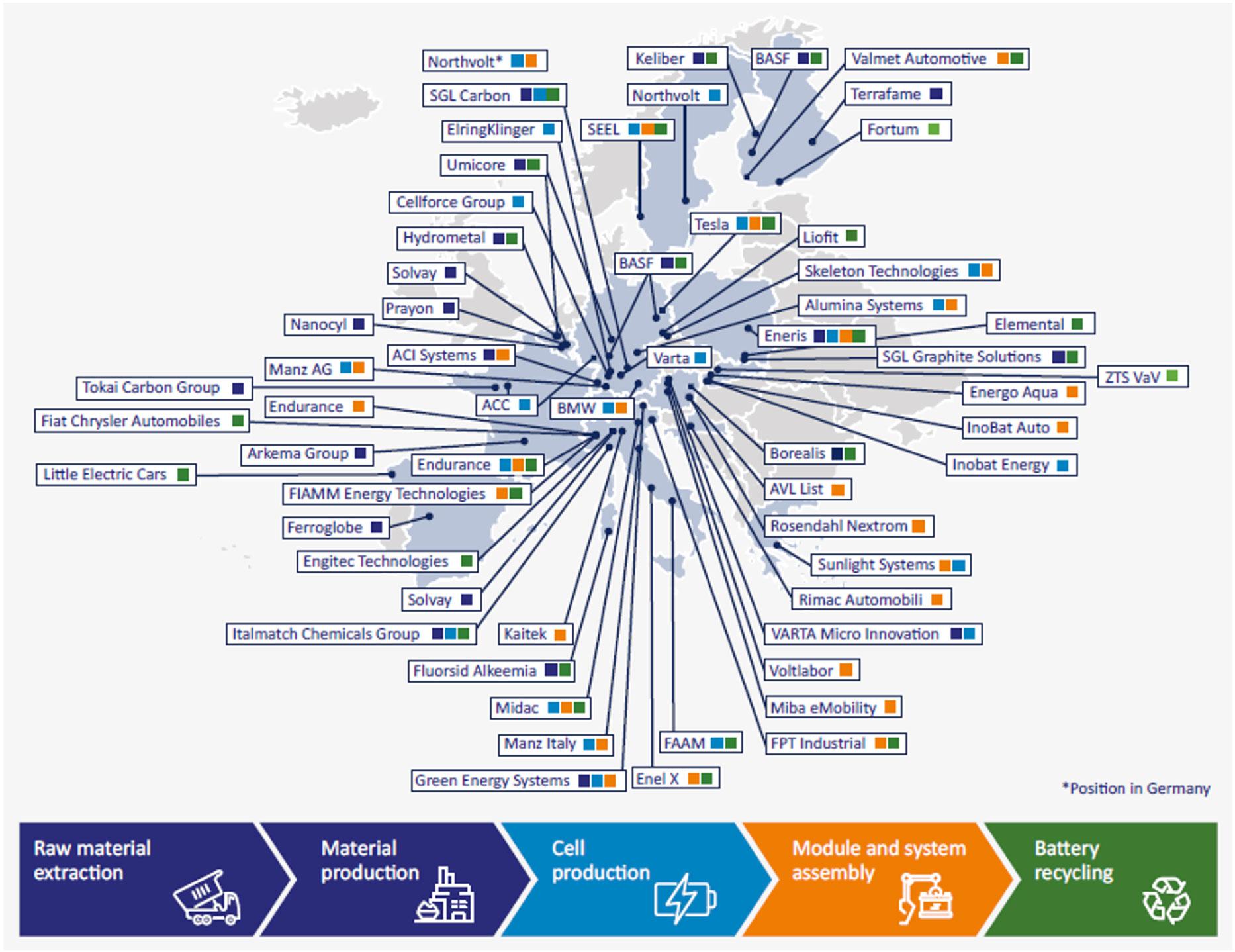Italian National Agency for New Technologies, Energy and Sustainable Economic Development

Transport: Batteries, EU project for supply chain development
Aiming to reduce costs and increase safety and durability
To create a European industrial battery supply chain to develop safer, more durable and cheaper storage technologies to support electric mobility and less dependence, in particular on China. This is the main objective of the European Battery Innovation (EuBatIn) project, which envisages the involvement of the main operators in the sector and institutions from 12 countries[1] and a funding of EUR 2.9 billion within the framework of the second Important Project of Common European Interest (IPCEI). For Italy, ENEA and Istituto Bruno Kessler participate on the research side and 12 companies (Endurance Spa, Enel X Srl, ENGITEC Technologies Spa, FIAMM Energy Technology, Fiat Chrysler Automobiles, Fluorsid Alkeemia Spa, FPT Industrial, Green Energy Storage Srl, Italmatch Chemicals Spa, Italy Srl, MIDAC Spa, Solvay).
ENEA activities began in May and will continue for five years. The project includes the construction at the ENEA Casaccia Research Centre (Rome) of the Advanced Battery Laboratory (AB-Lab), an innovative laboratory with an investment of around €27 million to provide a 'test bed' for companies during the initial industrial implementation phase. Conceived as a flexible and multi-purpose platform, at the AB-Lab it will be possible to carry out the entire production process: from the creation of new batteries to optimised end-of-life management; from circular economy aspects to advanced materials to the development of innovative electrodes, cells and modules, from recycling to disposal and closure of the cycle.
"The AB-Lab will represent a structure capable of acting as a 'bridge' between research activities and industrial production, boosting technology transfer and the industrialisation of laboratory prototypes," emphasises the ENEA project manager, Pier Paolo Prosini, researcher in the Energy Storage, Batteries and Technologies for the Production and Use of Hydrogen Laboratory within the Energy Technologies and Renewable Sources Department. "This will allow our country to exploit the enormous opportunities that lie ahead in the field of electrochemical energy storage, both in the stationary and automotive fields."
The AB-Lab will provide consultancy, material, component and system analysis, macroscopic, microscopic or thermal imaging by means of computerised axial tomography and three-dimensional surveys. In addition, innovative skills and equipment will be available for use by the scientific and university community as well as industry professionals.
More generally, as far as the EuBatIn project is concerned, ENEA is involved with a multidisciplinary team of experts and researchers who will work on the development of solutions to be transferred to companies with particular reference to durability, innovative and high-efficiency materials; the improvement of environmental, economic and safety performance and to optimise the value chain and sustainability; the implementation of re-use procedures and methodologies; and the recovery of critical end-of-life materials (especially lithium and phosphorous).
As part of EuBatIn, 46 projects were submitted by 42 companies with an estimated economic impact of over 10 billion to build a competitive, innovative and sustainable battery value chain with a strong focus on research, development, innovation and industrial implementation (fig.1).
"The combination of ENEA's competences, skills and equipment, in synergy with the university and industrial world, represents an added value that translates into significant direct and indirect economic spin-offs, contributing to social development, employment growth, with benefits in terms of reducing greenhouse gas emissions and increasing the use of renewable energy sources and electro-mobility," Prosini concludes.
Note
[1] Austria, Belgio, Croazia, Finlandia, Francia, Grecia, Germania, Italia, Polonia, Slovacchia, Spagna e Svezia
[2] M. Bechberger et al. Sustainability of battery cell production in Europe. How sustainable are batteries and electric mobility really? Heike Jürgens and Mira Maschke Editors. Berlin, August 2021. Available online

